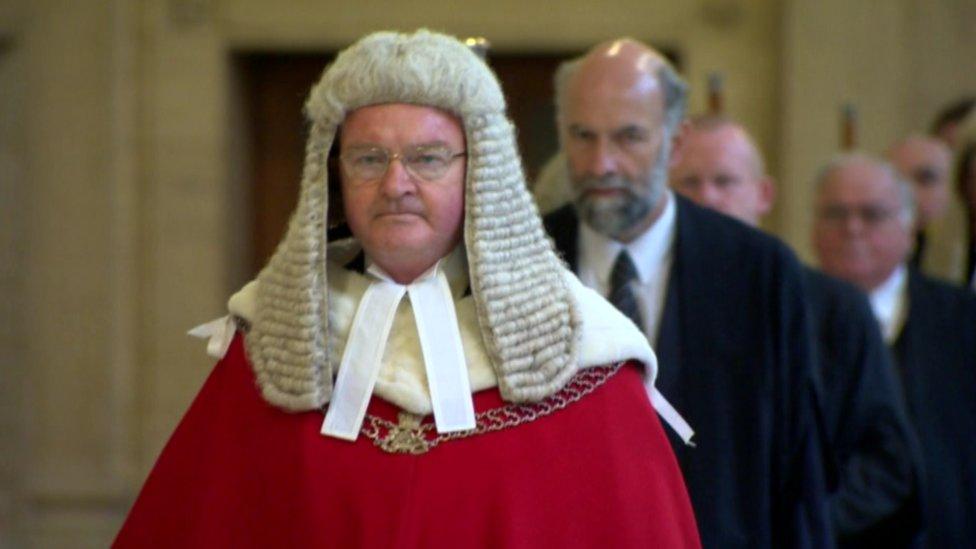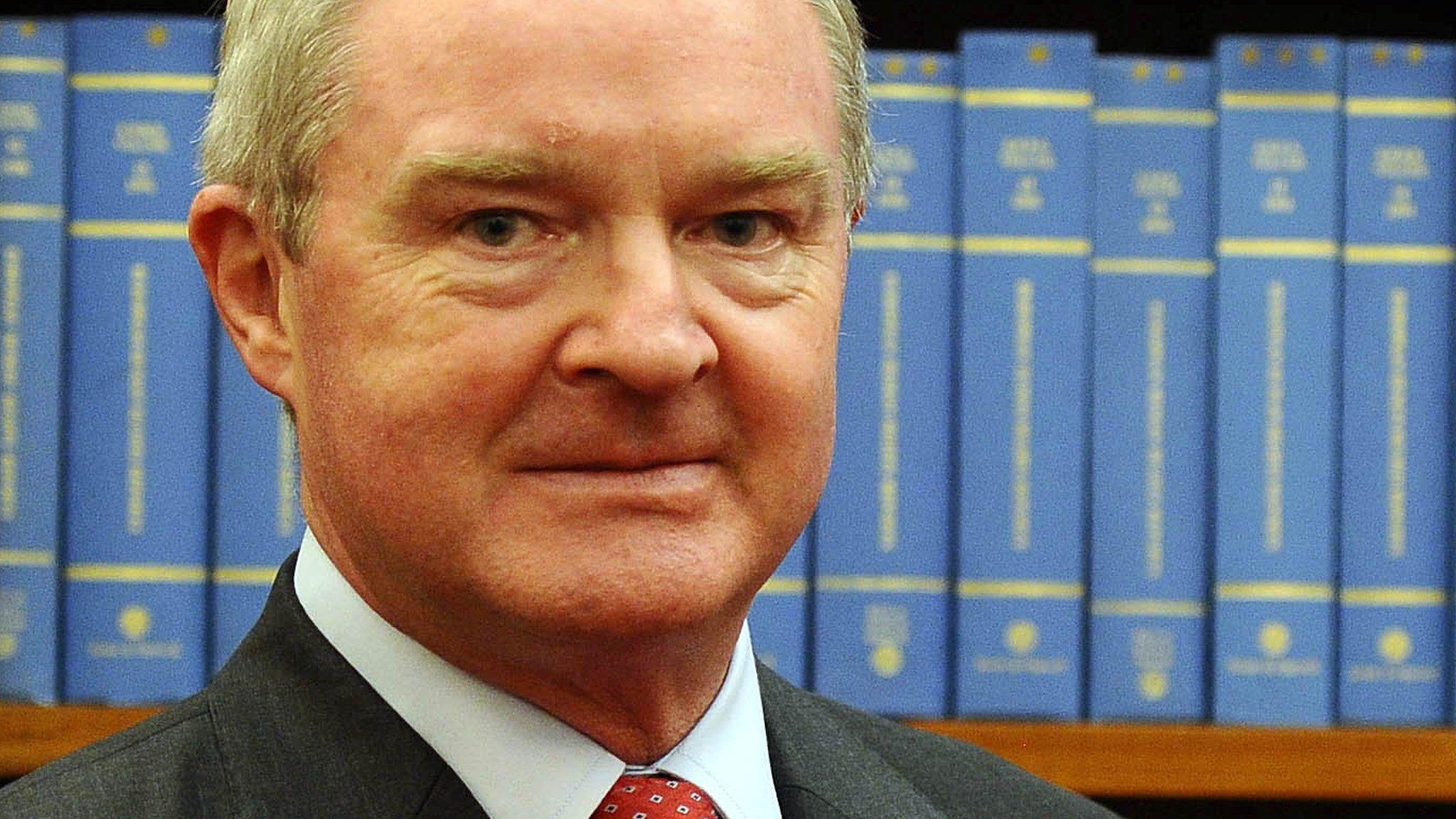Judges to preside over Troubles killings inquests
- Published

Sir Declan Morgan pledged to deal with families of those killed as openly and transparently as possible
Judges are to be appointed to preside over complex inquests into some of the Troubles' most controversial killings.
The Lord Chief Justice for Northern Ireland, Sir Declan Morgan, set out his plans for dealing with 54 legacy cases.
The cases include killings by police officers and soldiers, and others where there are allegations of collusion.
Sir Declan will assume responsibility for the inquests when he takes on the role of Presidency of the Coroners' Courts next month.
Review
Speaking at a conference organised by the Victims and Survivors Forum in Belfast, he pledged to engage with the families of those who were killed as openly and transparently as possible.
Sir Declan said he would appoint a senior judge, Lord Justice Weir, to undertake a comprehensive review of all legacy cases.
Preliminary hearings for all of the 54 outstanding inquests will be scheduled for January for "assessment of the state of readiness of each case".
Sir Declan told the conference he had been advised that some of the inquests could potentially be ready to be heard in the new year.
He also announced that a High Court judge would be designated to hear the most complex legacy cases, while some of the others would be heard by a County Court judge.
In a message for politicians, he said: "I have no desire to enter the political fray, but clearly there is a need for both political agreement on the mechanisms for dealing with the past and significant additional resources if we are to move these cases forward in any meaningful way."
Sir Declan added that "a visible political commitment from Westminster" would also be crucial, including a "pivotal role" for the minister for defence.
'Single figures'
He revealed that only nine legacy cases had been disposed of during the past five years, and 13 cases in total in the past 10 years.
Of the 54 outstanding legacy cases, 22 of them are now more than 40 years old.
The Lord Chief Justice warned that it could be "many years" before most of the cases could be dealt with.
"Based on experience to date, I suspect that the number of legacy inquests proceeding annually in the next year or two is likely to be in single figures," he said.
In November last year, Sir Declan warned that inquests into deaths involving alleged state collusion and cover-ups could go on until 2040 unless the coronial system was changed.
On Thursday, he said it would be wrong to give the families of those killed unrealistic expectations about what can be achieved.
However, he added: "I also want to assure you that I am fully committed to doing all that I can, within my sphere of influence and with the resources at my disposal, to ensure that justice is delivered."
Sir Declan said a model similar to the Historical Institutional Abuse Inquiry would undoubtedly speed up the hearing of cases, but this would require political agreement.
- Published7 September 2015

- Published17 November 2014
